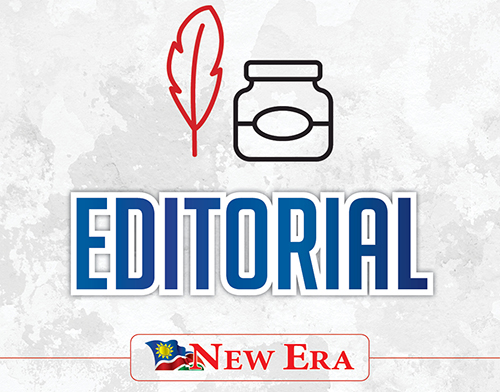You can’t vote if you haven’t registered.
If you don’t vote, you forfeit the only opportunity you have to voice your opinion about who should make decisions on your behalf.
Many young people are not interested in politics, and consider decisions made on their behalf as inevitable, with little impact on their lives. They do not see themselves as true participants in that process. Many view government as an aloof entity, removed from the realities of their undignified lives. Much can be said about the reasons and who should be blamed for this state of affairs.
But they must be reminded that every aspect of their lives is touched by the decisions made by those they only see on TV or speeding past them in their flashy imported luxury cars. The reality remains: whether you “do politics” or not, politics has a tendency to find itself on your doorstep, regardless of whether you invite it or not.
The American chef and TV presenter Anthony Bourdain often said, “There is nothing more political than food.” Bourdain made this point to reflect on how history and geography impact the preservation of food and how ingredients reflect long, often painful histories.
In Namibia, the absence of food has enjoyed screaming headlines in recent months as the prolonged drought continues to impact lives and livelihoods. But malnutrition and food scarcity are not only consequences of the drought but also signs of decision-making and prioritising. Or the lack thereof.
These disasters further point to the absence of efficient and effective systems, processes, and institutions to prevent and tackle them when they rear their ugly heads despite robust preventative measures.
In this country, we have institutions responsible for preventing or mitigating disasters, but how effective they are should worry every Namibian. If you are a Namibian without food, you need to ask yourself how your own decisions have brought you to that point and, while solutions like a basic income grant exist, why you have not benefited from them.
The voting-age population in Namibia has grown, with authorities believing the country now has 1 348 532 eligible registered voters. But voter turnout has been on the decline since 1989. That year, close to 700 000 eligible voters exercised their democratic rights. Turnout steadily declined, from 97% in 1989 to 61% in 2019.
The number of registered voters, with less than a week to go until registration closes, has worried all and sundry. The Electoral Commission of Namibia this week announced that since the commencement of the general registration of voters (GRV) on 3 June to 20 July 2024, a cumulative total of 1 153 916 eligible Namibians registered as voters inside the country and at all Namibian diplomatic missions abroad, representing 71% of the eligible voters. The total number of voters registered from 15-20 July 2024 stands at 164 535 voters, representing an average of 27 404 registered voters per day, which is a slight decline compared to the turnout of the previous week.
While the media has held their end of the bargain by informing the nation about why it is important to register, how and where to register, and providing regular updates about the process, political parties, civil society, and individual politicians have so far failed to energise the electorate. There are very few campaigns to encourage target audiences or educate them about the importance of this vital process.
We, therefore, once again, call on all eligible Namibians to please go and register to vote. It is not just to exercise your own rights; it is also your responsibility to participate in the decisions made on your behalf.
As we head into this decisive week, to address the voting apathy question beyond November, a curveball is thrown in the court of policy and lawmakers to consider making voting compulsory.
Australia is Exhibit: A. Australians believe that by voting, the voter is part of the decision; and is making a choice about how their community, state or country functions.
Not voting, therefore, means that you are relying on someone else to choose for you. Not voting also means you may be fined because voting is compulsory in Australia.
While political parties, civil society organisations, the electoral commission and the media have a civic duty to educate voters about the importance of their participation, the onus to cast that vote, acquire requisite information to make informed decisions, rests squarely on voters.
As the adage goes, “You can take a donkey to a waterhole, but you cannot force it to drink.” The same goes for voters.



